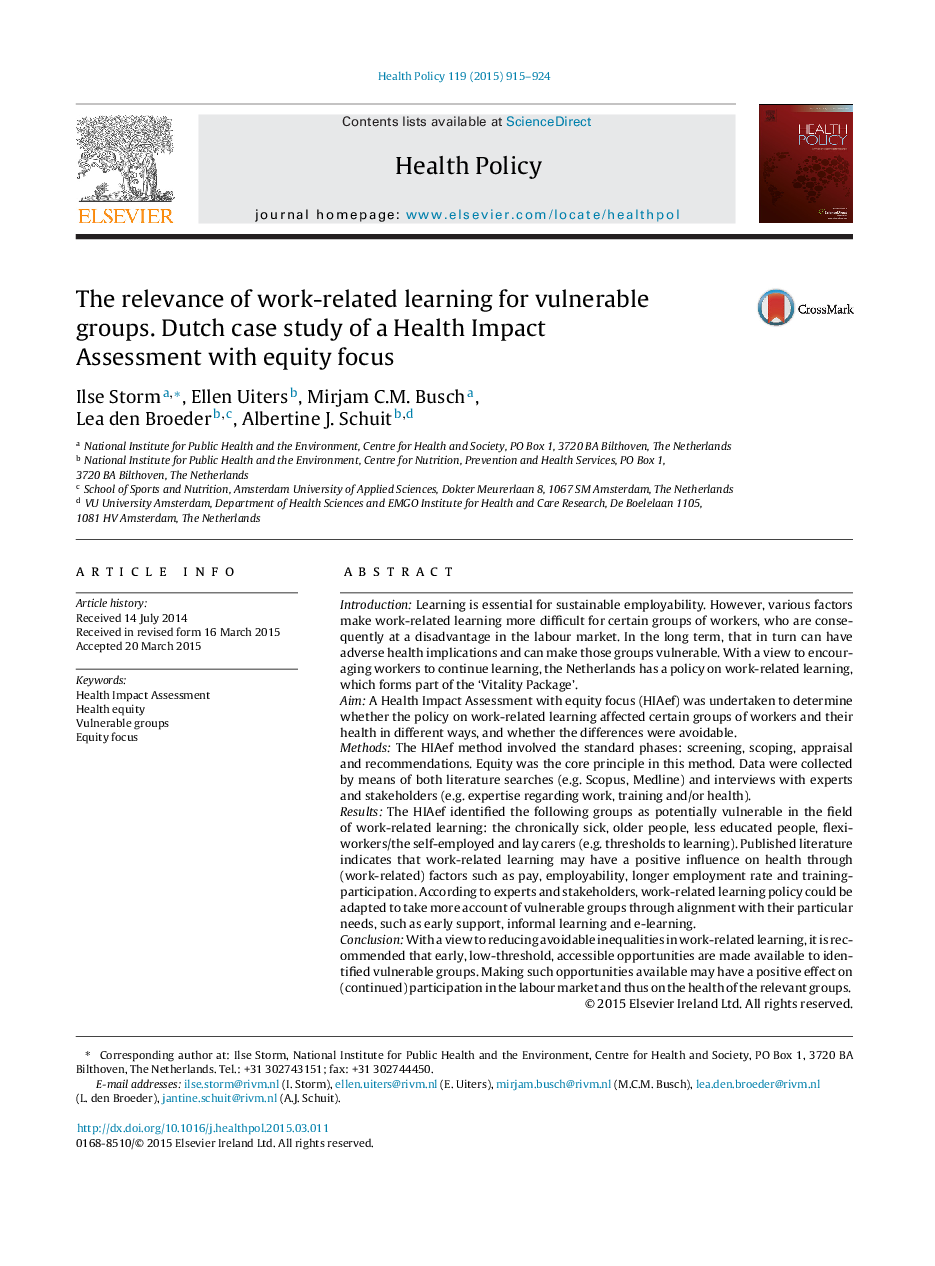| کد مقاله | کد نشریه | سال انتشار | مقاله انگلیسی | نسخه تمام متن |
|---|---|---|---|---|
| 6239299 | 1278992 | 2015 | 10 صفحه PDF | دانلود رایگان |
- Health Impact Assessment.
- Health equity focus.
- Vulnerable groups.
- Work-related learning.
IntroductionLearning is essential for sustainable employability. However, various factors make work-related learning more difficult for certain groups of workers, who are consequently at a disadvantage in the labour market. In the long term, that in turn can have adverse health implications and can make those groups vulnerable. With a view to encouraging workers to continue learning, the Netherlands has a policy on work-related learning, which forms part of the 'Vitality Package'.AimA Health Impact Assessment with equity focus (HIAef) was undertaken to determine whether the policy on work-related learning affected certain groups of workers and their health in different ways, and whether the differences were avoidable.MethodsThe HIAef method involved the standard phases: screening, scoping, appraisal and recommendations. Equity was the core principle in this method. Data were collected by means of both literature searches (e.g. Scopus, Medline) and interviews with experts and stakeholders (e.g. expertise regarding work, training and/or health).ResultsThe HIAef identified the following groups as potentially vulnerable in the field of work-related learning: the chronically sick, older people, less educated people, flexi-workers/the self-employed and lay carers (e.g. thresholds to learning). Published literature indicates that work-related learning may have a positive influence on health through (work-related) factors such as pay, employability, longer employment rate and training-participation. According to experts and stakeholders, work-related learning policy could be adapted to take more account of vulnerable groups through alignment with their particular needs, such as early support, informal learning and e-learning.ConclusionWith a view to reducing avoidable inequalities in work-related learning, it is recommended that early, low-threshold, accessible opportunities are made available to identified vulnerable groups. Making such opportunities available may have a positive effect on (continued) participation in the labour market and thus on the health of the relevant groups.
Journal: Health Policy - Volume 119, Issue 7, July 2015, Pages 915-924
